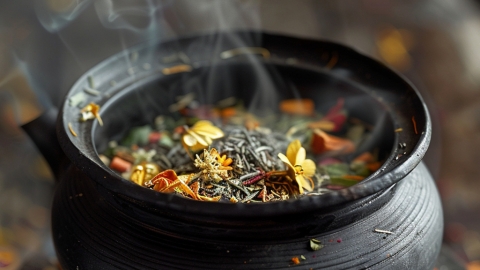What are the reasons for not sweating after drinking Guizhi Decoction?
Not sweating after taking Guizhi Decoction may be due to individual constitutional differences, environmental factors, body temperature regulation issues, improper administration methods, or underlying health conditions. The analysis is as follows:

1. Constitutional Differences: Individuals may respond differently to Guizhi Decoction. Some people may be less sensitive to the formula, making it harder for them to sweat. In such cases, consider adjusting the dosage of Guizhi Decoction or selecting other herbal formulas better suited to the individual's constitution.
2. Environmental Factors: Environmental conditions such as temperature and humidity can affect sweating. If the ambient temperature is too low or humidity too high, the diaphoretic effect of Guizhi Decoction may be reduced. Maintaining good indoor ventilation and appropriately adjusting room temperature can help create favorable conditions for sweating.
3. Body Temperature Regulation Issues: Guizhi Decoction may influence thermoregulation. If the body’s temperature regulation mechanism is impaired, sweating may be inhibited. In such cases, moderate exercise and maintaining a regular lifestyle can support normal thermoregulation and promote sweating.
4. Improper Administration Methods: Incorrect usage methods may also affect the sweating outcome. Insufficient dosage, inadequate decoction time, or other preparation errors could prevent sweating. Following medical advice and ensuring correct preparation and intake methods can enhance the therapeutic effect and promote sweating.
5. Health Conditions: Underlying health issues such as disorders of the central nervous system or circulatory system may interfere with the sweating mechanism. If a medical condition is suspected, it is advisable to consult a physician for appropriate examination and diagnosis.
During the course of taking Guizhi Decoction, maintain a light diet and avoid consuming excessive spicy or stimulating foods to prevent interference with its effectiveness.






